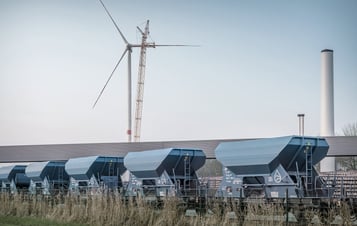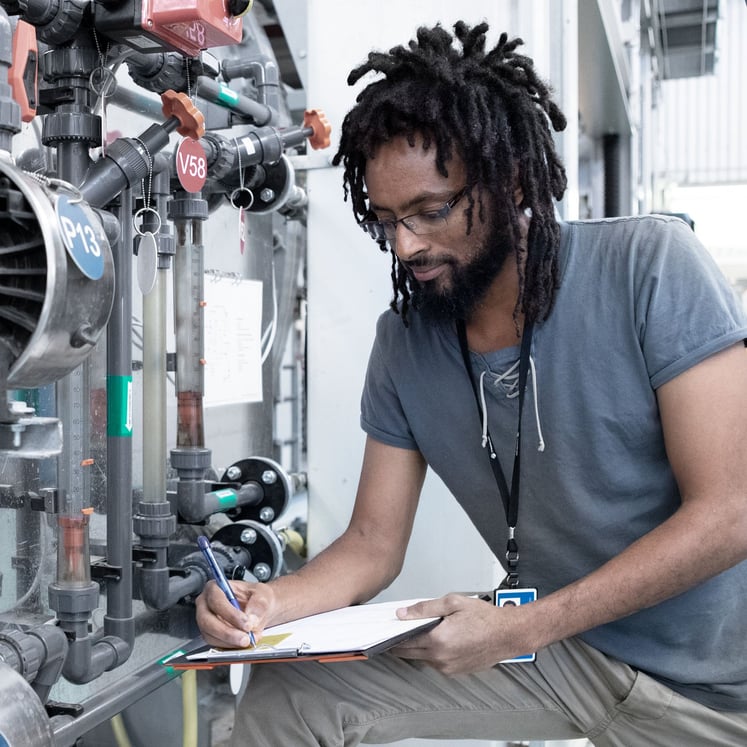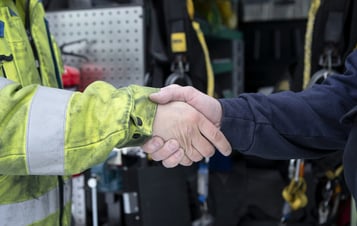Supply chain responsibility
We are continuously working to improve our sustainable sourcing and purchasing practices.
Our responsibility and commitment to act sustainably is valid not just within our operations, but extends to our supply chains as well. By focusing on environmental and social aspects throughout our supply chains, we can gain long term advantages, principally by reducing risk, reducing cost, and improving our brand value.
Vattenfall has approximately 30 000 suppliers across our primary sourcing and purchasing streams; goods and services, and commodity fuels, including biomass, natural and low-carbon gases, and nuclear fuel.
Strategy
Through our supplier engagement strategy, sustainability assessments, and collaboration in specific industry initiatives, we are striving to increase our influence in the supply chain, strengthen our relationships with suppliers and support improvements in their sustainability performance.
Vattenfall’s Code of Conduct and Integrity governs the way we communicate and work with our own employees. Our Code of Conduct for Suppliers and Partners (CoCfSP) defines the company's requirements and expectations of suppliers with respect to sustainability. From 1 April 2023, the CoCfSP also applies to partners, including but not limited to joint ventures and consortium partners.
To support implementation of the CoCfSP, the Guide to the Code of Conduct for Suppliers and Partners (The Guide) offers practical examples and best practices, helping suppliers and partners understand and meet the expectations and requirements set out in the CoCfSP.
As Vattenfall has many suppliers and buys a wide range of goods, services and fuels, each with varying risk profiles and legal and sustainability requirements, the implementation of our CoCfSP varies. Nevertheless, we ensure that contracts with suppliers include either our CoCfSP via an ethical clause, align with relevant industry initiatives such as the Sustainable Biomass Program, or some combination of these approaches.
To learn more about the initiatives Vattenfall is involved in, read more on Supply chain initiatives.
Work in progress
Procurement and business functions at Vattenfall, together with support from sustainability experts, drive the transition to a sustainable supply chain.
Our vision is to build resilient, sustainable, and competitive supply chains that create sustainable value for the business, in close collaboration with a decarbonised and sustainable supply chain. We continuously improve our sustainable sourcing and purchasing practices throughout our value chain by developing clear guidelines, raising awareness, and standardising processes across our functions and business areas.
Vattenfall’s goods, services and fuel suppliers are screened and monitored for sanctions and adverse media coverage. We carry out an internal risk assessment of our supplier base based on country, product or service category risk, and spend. Based on the results, we conduct on-site audits of high-risk suppliers to verify the compliance of our minimum sustainability requirements. Corrective actions are taken based on audit findings and are regularly followed up on. Implementation of our processes is tracked on a regular basis as we engage in new projects, investments and business relationships.
In line with the International Responsible Business Conduct (IRBC), we aim to include sustainability requirements systematically in pertinent product category strategies. Accordingly, sustainability requirements based on Vattenfall’s focus areas, such as CO2, human rights, and circularity, are embedded in tenders of these product categories.
With the ambition to manage supplier-related sustainability risks and impacts beyond first tier suppliers, we are expanding our knowledge of risks and impacts deeper in our supply chains. We believe that partnerships and stakeholder collaborations offer the greatest opportunities for change. Therefore, we actively participate in various supply chain initiatives and seek dialogue with NGOs and other stakeholders.
Related content

Partnerships and collaborations offer great opportunities for positive impact.

Diversity, equity and inclusion are fundamental to our success.

We are responsible for respecting all internationally recognised human rights agreements.





